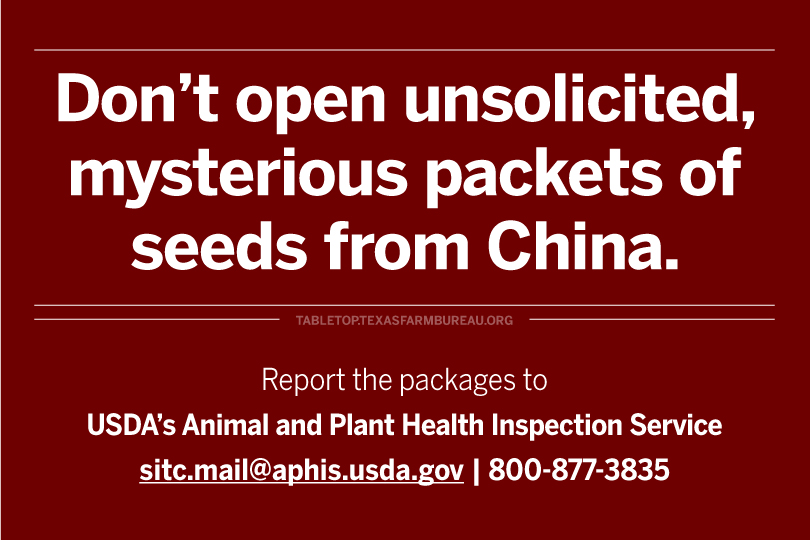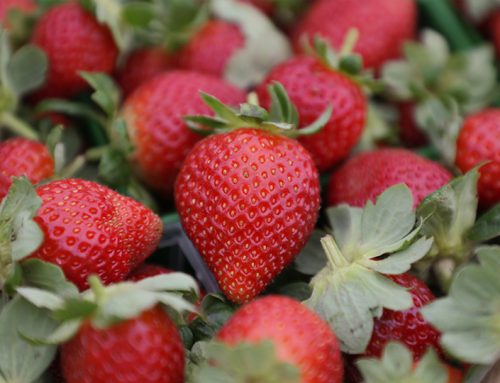By Jennifer Dorsett
Coronavirus, murder hornets, major drought and hurricanes. In a year full of strange twists and unexpected events, “mystery seeds” can now be added to the list.
American residents, including Texans, have received unsolicited, unidentified packets of seeds with Chinese text printed on the packages, according to multiple state departments of agriculture.
Although it may be tempting to plant the seeds to see what sprouts—the tale of Jack and the Beanstalk comes to mind—Texas Agriculture Commissioner Sid Miller said it’s a bad idea.
The seeds may be those of invasive plant species, or they may have been treated with harmful soil pathogens or other diseases harmful to vegetation and animals. We just don’t know.
Invasive species can destroy native crops and may be dangerous for livestock to ingest.
Examples of highly destructive invasive species in Texas include red imported fire ants, zebra mussels, the dreaded kudzu vine and giant salvinia.
After some investigation, the packages appear to be part of an online scam called “brushing,” according to the Whitehouse Police Department in Whitehouse, Ohio.
“A brushing scam is an exploit by a vendor used to bolster product ratings and increase visibility online by shipping an inexpensive product to an unwitting receiver and then submitting positive reviews on the receiver’s behalf under the guise of a verified owner,” the department said in a statement.
Here’s an example of a verified product review from Amazon:

How this scam works is the seller sends something to a U.S. address, then submits documentation to online retail sites verifying a package was sent to that address. The seller then uses the “sale” to write a positive review, artificially boosting their product’s rating.
It’s dishonest, but the act of sending unsolicited, unmarked seeds from other countries is also illegal in the U.S.
To prevent the spread of invasive species or imported disease, USDA Animal and Plant Health Inspection Service (APHIS) requires the importer of any plants or animals into the U.S. to obtain regulatory permits prior to shipping these items.
Mailing or shipping plants and plant products to the U.S. without a transit permit is considered “agricultural smuggling.”
So what should you do if you are the recipient of one of these packages?
Do not open unexpected packets of seeds. Instead, report the package to APHIS at sitc.mail@aphis.usda.gov or by calling 800.877.3835.











Leave A Comment